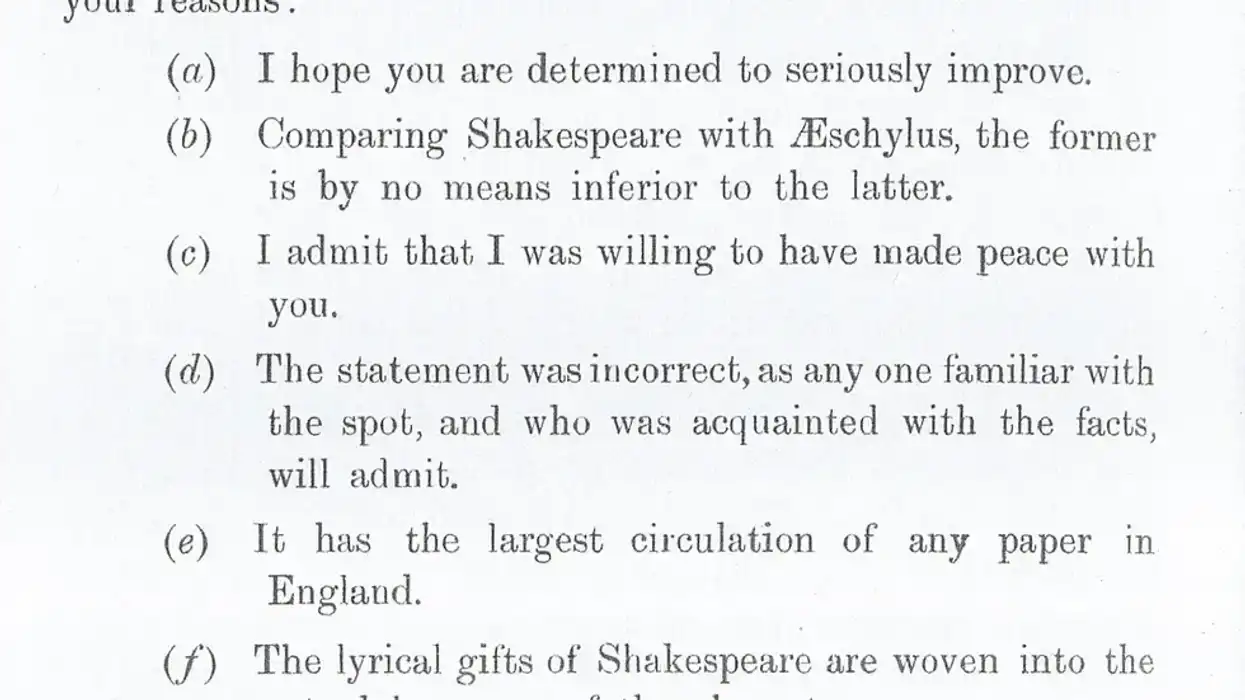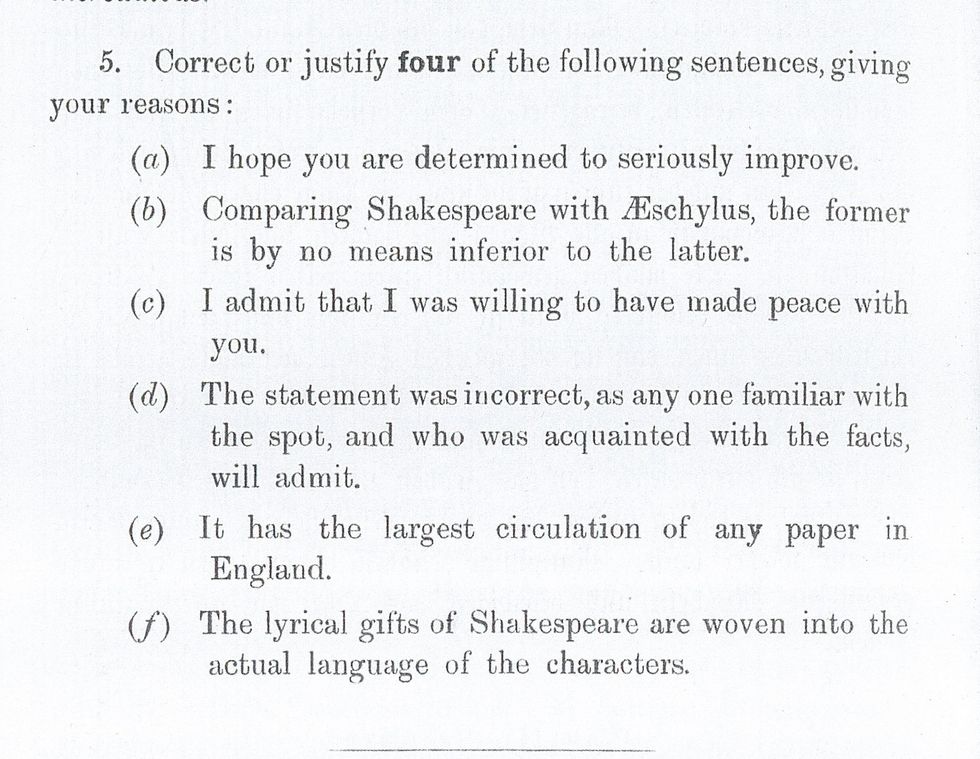Viral
Ellie Abraham
Aug 03, 2023

Cambridge University's graduation ceremony is reminiscent of Harry Potter
Cambridge University Press & Assessment
A 110-year-old English language question formerly used in Cambridge English exams is absolutely baffling people over a century later.
Exams at school and university are typically not things people look back on with fond memories, but it’s something we do in order to progress academically.
For those who sat the very long Cambridge exam wishing to become an English language teacher back in 1913, they may well have been haunted by a question that continues to confuse people in the year 2023.
In celebration of 110 years of the Cambridge English exam, the question has been released, but can you solve it?
The question comes from the June 1913 Certificate of Proficiency in English exam, which was sat by three people and cost £3 at the time.
Sign up to our free Indy100 weekly newsletter
It was a gruelling 12-hour long exam and included sections on dictation, translation, and phonetic transcription. Today, more than 6 million people each year take the C2 Proficiency test, as it is now known.
Francesca Woodward, Managing Director for English at Cambridge, said in a statement: “From just three candidates, we now open doors for millions of people every year to learn and teach English.
"The historical papers from our archives paint a fascinating picture of how much has changed when it comes to learning English with Cambridge.”
The question asks the candidates to “correct or justify” four of six different statements and to explain their reasoning.

The first statement said: “I hope you are determined to seriously improve.”
The second read: “Comparing Shakespeare with Aeschylus, the former is by no means inferior to the latter.”
The third says: “I admit I was willing to have made peace with you.”
The fourth reads: “The statement was incorrect, as any one familiar with the spot, and who was acquainted with the facts, will admit.”
The fifth said: “It has the largest circulation of any paper in England.”
And the sixth said: “The lyrical gifts of Shakespeare are woven into the actual language of the characters.”
Cambridge highlights that what was deemed the correct English over 100 years ago may be different from now.
Here are the answers:
1) This is a split infinitive and should be avoided in formal writing. The correct wordage would be, “seriously to improve”.
2) This statement is incorrect because it is a hanging participle and unintentionally modifies the wrong noun in a sentence. Alternatives that would be correct include, “Shakespeare is by no means inferior to Aeschylus” or “Shakespeare is just as good as Aeschylus”.
3) This statement uses the wrong tense and should read, “to make peace”.
4) Again, this uses the incorrect tense. The words “will admit” should instead be “would admit”.
5) and 6) are correct but candidates would have to explain why no changes are necessary.
Have your say in our news democracy. Click the upvote icon at the top of the page to help raise this article through the indy100 rankings.
Top 100
The Conversation (0)













